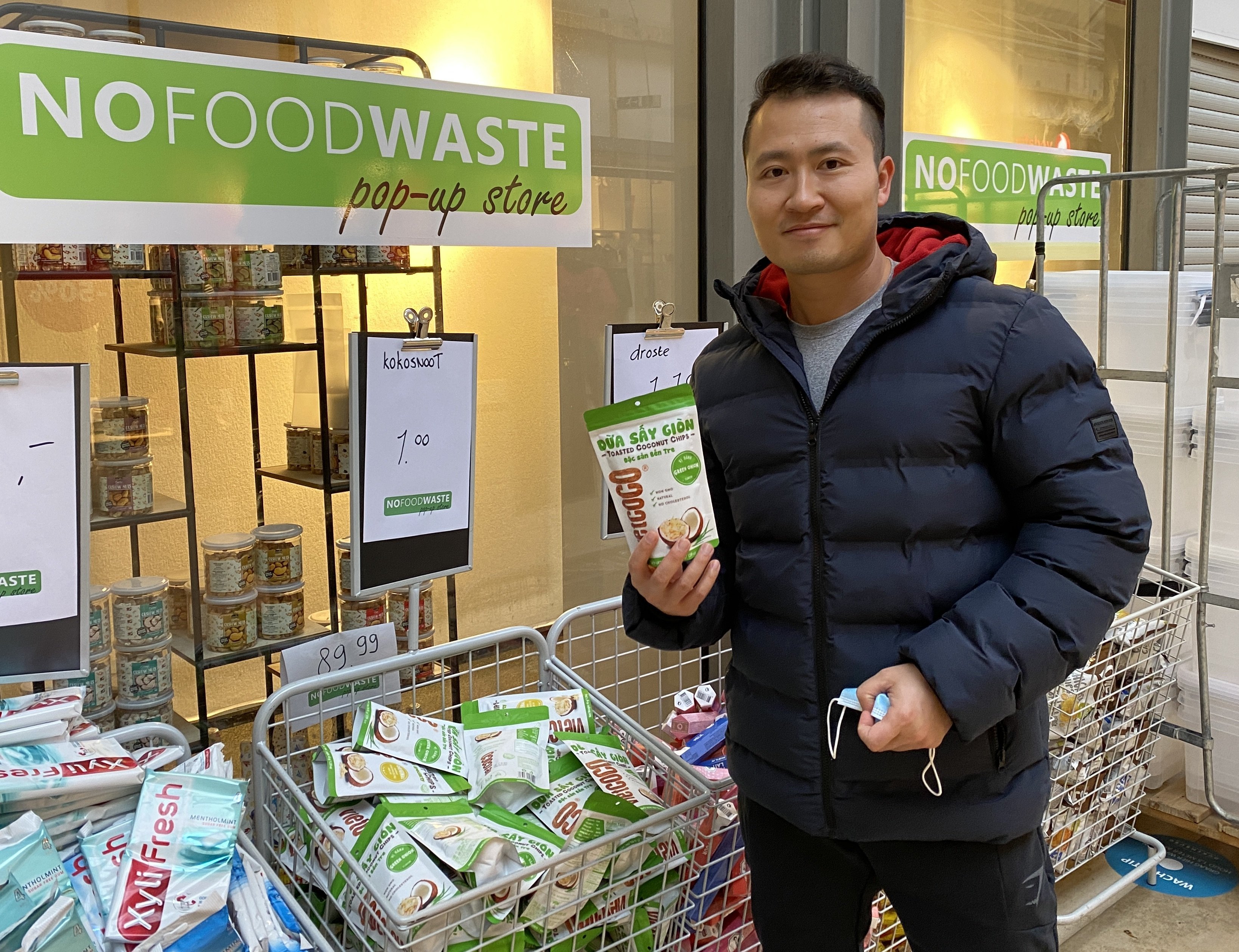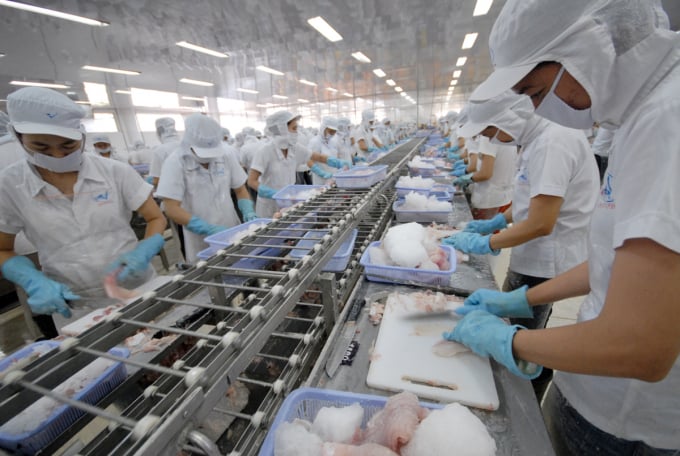June 19, 2025 | 04:14 GMT +7
June 19, 2025 | 04:14 GMT +7
Hotline: 0913.378.918
June 19, 2025 | 04:14 GMT +7
Hotline: 0913.378.918

Mr. Nhu Nguyen - Director of VIEC Company (Netherlands) introduced Vietnam's agricultural products in the Netherlands. VIEC Company has achieved certain successes in bringing water hyacinth tables and chairs, agricultural products, and coffee to the Netherlands.
Russia is a country with an extremely rich amount of natural resources. Russian exports to the world include wheat, gas, crude oil... According to a report by Refinitiv Datastream/Karin Strohecker, Russia is currently the world's largest wheat exporter.
In addition, Russia is also a supplier of about 35% of the natural gas needs to Western Europe, largely due to the pipelines through Poland and Belarus under the Nord Stream 1 pipeline project to Germany, and the territory of Ukraine to other countries.
As for Vietnam, this country has a large number of imports of agricultural, forestry, aquatic, and seafood products. Before the war, Russia was a country with a lot of great resources, playing a major export role in certain goods.
However, as the war between Russia and Ukraine becomes more intense, the world will experience many economic upheavals. With the aim of punishing Russia, the EU Allies, the US, G7, Japan and 30 countries in Nato will continuously create barriers in the economy. In countries that are applying economic sanctions against Russia, businesses that continue to work with Russia will also be indirectly hindered and face many difficulties.
And more than that, the currency in Russia is in a serious crisis, falling to a record value in history, in less than a week, the price of Rube has nearly halved. This is what causes inflation. Because when the currency depreciates, the price rises, which has a great impact on the economies of the countries investing in this country.
This war will bring unimaginable consequences. So is there any chance for businesses to not disrupt production or not?

Rusia imports a large number of Vie imports of agricultural, forestry, aquatic, and seafood products. Photo: LHV.
As Russia focuses on preparing for a conflict with Ukraine, economic transactions will be greatly affected and not close enough for businesses. This is difficult for businesses to cooperate with Russia at this time. And if the currency in Russia continues to depreciate, we need to look for new investment opportunities.
Russia is a large market, ideal for investment and production. However, the EU market is much more potential, with a larger population and a thriving economy. And more importantly, EU countries have stable political institutions. In a recent social survey in the Netherlands and Europe, when the war was happening in Ukraine.
Dutch people said that they will limit and even stop buying Russian products and goods from countries close to Russia, such as Belarus or China. Goods produced from this place are considered poor quality, now facing more difficulties in this potential market.
This is the time when Vietnamese businesses go to win a place in the EU market, and the important destination of the EU gateway is the Netherlands. In addition to gas, the Netherlands as well as Europe also import a large amount of agricultural and aquatic products from Russia. As mentioned above, Dutch people are no longer interested in products from Russia. However, this is an essential item, so people's needs are still very much. They will look for those items in other countries around the world.
Some items that the Netherlands imports strongly from Russia in 2019 and 2020: Total import value in 2019 is: EUR 40 billion. In which agricultural products: EUR 105 million; Seafood: EUR 750 million; Furniture, interior and exterior equipment: EUR 100 million.
These will be the items that people in the Netherlands are always in demand. But it will be replaced by another supply. Vietnam needs to grab this opportunity.
Moreover, the European-Vietnam Free Trade Agreement (EVFTA), which officially took effect on August 1, 2020, has opened up many opportunities for Vietnam's agricultural product industry to boost exports. to the European market.
Besides, Vietnam has advantages in agricultural products and is developing seafood products, so we have every right to hope about the future of joining the large EU market.
VIEC Company has achieved certain successes in bringing water hyacinth tables and chairs, agricultural products, and coffee to the Netherlands.
By understanding the culture and markets of the Netherlands and Vietnam, VIEC Company firmly believe that we can help businesses gain many benefits when entering a new market. Without going through a third party, VIEC Company will work directly with businesses and partners.
VIEC company believes that it can accompany businesses in each stage of preparation and production. And if no stall, the company will be ready to support display and sales to B2C consumers in the Netherlands. Please contact via email: info@viec.nl – Zalo/ Viber/ Whatsapp: +31642049998.
Translated by Ha Phuc
/2025/06/17/2344-1-131758_261.jpg)
(VAN) Amid tariff risks and growing trade barriers in the U.S. market, Australia is emerging as a promising destination to sustain the growth momentum of Vietnam's shrimp exports.
/2025/06/17/2013-1-nongnghiep-112009.jpg)
(VAN) This notable growth trend reflects the global taste for fresh, nutritious fruits and the expanding use of lychees across various sectors.

(VAN) The political and cultural insulation of Japan’s beloved grain is falling apart, and experts warn the country’s relationship with the staple will have to adapt.

(VAN) Noting risks, report examines impacts of avian influenza, changing trade patterns since 2022, fish fraud, and shipping industry’s net-zero goals.

(VAN) Mr. Tran Quang Bao, General Director of the Forestry and Forest Protection Department, met and worked with the International Wood Products Association to promote cooperation in the field of timber trade.

(VAN) China's outbound shipments of rare earths in May jumped 23% on the month to their highest in a year, though Beijing's export curbs on some of the critical minerals halted some overseas sales.

(VAN) To sustain capital flow, administrative reform alone is not enough; what farmers truly need is an ecosystem where both government and businesses grow together in support.